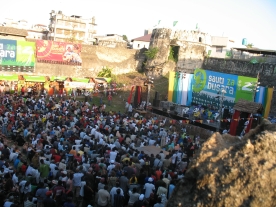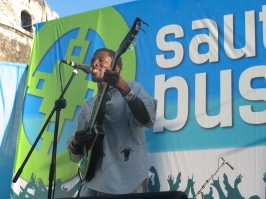I walked into a room, in which sat a panel made up of four prominent professional women from diverse cultures. I had, the previous day, received the long awaited call, and I was excited about what the future presented to me.
The interview turned out to be quite interesting, apart from the usual questions. “Why do you want to work with us?”, “Why are you seeking a move from your current job?”, one particular panelist kept asking me repeatedly and with an agitated tone of voice. When I did respond, she interjected midway, insisting in a really stern tone that I was not answering her question. Then, I had to repeat my response calmly for the umpteenth time, and since I didn’t take the bait, she backtracked. At the time, I didn’t realize that this was an intentional stunt to rile me, and for the panel to gauge how I would handle myself in an aggravated situation. This only struck me days after the interview. Even then, I surprised myself at how calm and collected I was throughout the process.
Thereafter, my friends were keen to know when I would start working for the UN and were equally baffled that I eventually turned down the offer of a lifetime, in their view, for a switch to consulting instead. I recall one of my friends joking that I would be blacklisted by the UN because nobody in their right mind turns down the UN. Well, I did and, looking back, it was one of the better decisions I could have made at the time because it helped shaped my career direction in more ways than one.
Settling into strategic communications consultancy was the start of a journey of self-discovery for me: finding my feet in terms of the future direction of my career. My career trajectory thus far, I must admit, was much more motivated by financial gain than career maturity. Even more ironic, then, that this was the top motivation for my switch to consulting. However, it was a lot more intriguing for me as I had finally met my match. Such an enormous challenge made me more focused and triggered me to think more critically about my career goals and future development.
My move into consulting was a struggle at the beginning. Working for a Pan-African consultancy and being the only strategic media lead for the business in Tanzania meant that I had to do a lot of multitasking, dealing with numerous requests from multiple offices across Africa including London, where the consultancy is headquartered. Dealing with up to four or five client media requests a day meant that I had to make it my business to know what the media editors were eating, where they were sleeping and with whom, literally.
The limited number of English versus Swahili media in Tanzania, and multiple clients vying for media space became my first major headache. My second elephant in the room was poised by the chronic practice of media and public relations agencies paying media to cover stories. Of course, the consultancy I worked for subscribed to the UK bribery code of conduct. Naturally, as a consultancy with British roots, the practice of bribery was abhorred in all its forms. How then would I navigate in this environment given that the buck stopped with me? Again, a light bulb moment, which meant I had to sharpen my networking skills to make this work.
I had my moments when I broke down, thinking that I would disappoint a client and lose my job. Sometimes the pressure got to me. The responsibility of handling multiple client portfolios and with each one demanding the same attention, precision and efficiency, however, added to my resilient spirit. I had to learn to be diplomatic, not to act out in email responses: all of these experiences opened up my worldview to the corporate culture which I had not quite experienced before.
I recall one of the many job interviews I had attended previously, where I had a very interesting question posed to me. The interviewer looked at my resume and noted in her own words that I had only worked in ‘soft’ roles and not cut my teeth in an intensive pressure driven environment such as the corporate world. What then made me think that I would be successful? I remember responding to the contrary: that a media producer probably faces double the pressure and intensity because they have an audience that they have to tie down and impress, every day or every week, or risk losing them. Then, they have nothing. The pressure, the deadlines, the expectancy of topping that next program, maintaining consistent creativity, making it stand out more than the previous one is a job like none other.
I did get the job, of course, but ended up not taking it. Anyhow, through that consultancy journey, I discovered my sweet spot: I wanted to pursue corporate social responsibility drawing from my previous experience in development communications and the corporate experience. That intersection was the light bulb moment that moved me on.







